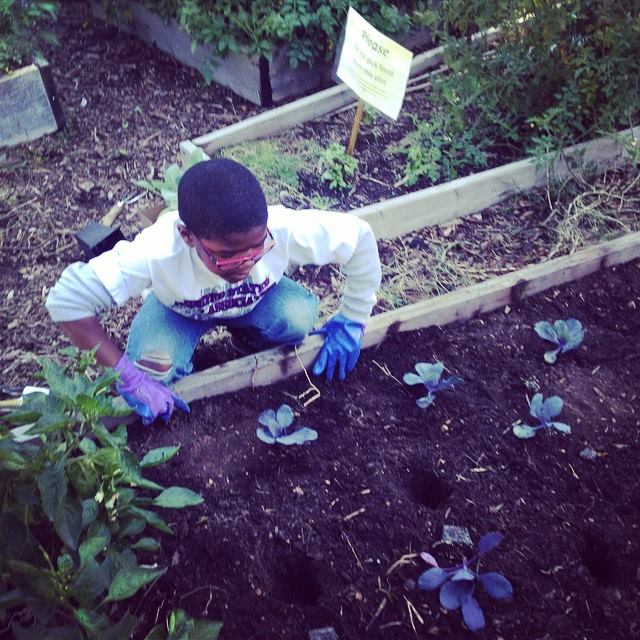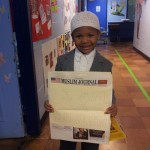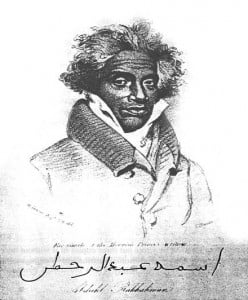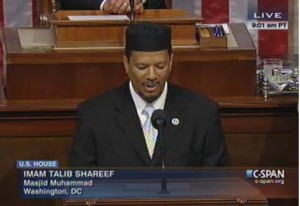(NB: During this Black History Month, I aim to write a few short pieces focusing on events connected to Muslims of black African descent who have contributed to the American religious and historical landscape in a significant way.)
Muslim History Detective’s log, February 5, 2014
 On June 25, 1988, Imam Warith Deen Mohammed attended the First Liberty Summit in Williamsburg, Virginia. Along with 100 other prominent Americans present that day, he served as a national signer of the historic Williamsburg Charter. Other signers, a total of 200 by year’s end and representing diverse areas of American life, included two former U.S. presidents, a chief justice of the U.S. Supreme Court, and civil rights activist Coretta Scott King. The document addressed the then-current “dilemmas, challenges, and opportunities posed by religious liberty in American public life.” The chosen date commemorated the 200th anniversary of the Virginia legislature’s call for a federal bill of rights, which included a focus on safeguards for religious freedom.
On June 25, 1988, Imam Warith Deen Mohammed attended the First Liberty Summit in Williamsburg, Virginia. Along with 100 other prominent Americans present that day, he served as a national signer of the historic Williamsburg Charter. Other signers, a total of 200 by year’s end and representing diverse areas of American life, included two former U.S. presidents, a chief justice of the U.S. Supreme Court, and civil rights activist Coretta Scott King. The document addressed the then-current “dilemmas, challenges, and opportunities posed by religious liberty in American public life.” The chosen date commemorated the 200th anniversary of the Virginia legislature’s call for a federal bill of rights, which included a focus on safeguards for religious freedom.
During the signing ceremony, Imam Mohammed, the only Muslim speaker and signatory, expounded on his “commitment to the principles of religious liberty for all others”:
“Precious souls of Americans from the past and you who are gathered here, I greet you as Muslims greet each other, “Peace be unto you.” The following is given as an expression of Muslims’ deep-seated support of the freedom of religion.
The Founding Fathers’ classic treatment of man’s worth, and American law in its Constitutional role of championing the safety of man’s common and vital life and liberty, are no doubt concerns held in sacred regard by the international community of Muslims. Moreover, that our holy book, the Koran, and our Prophet, peace be upon him, Muhammad, represent for Muslims the living and enduring sources of our support for freedom of religion, is common knowledge with Muslims of all nationalities.
Therefore, it is in the spirit of man’s historical, classic and universal attention to human life and freedom of religion that we humbly join the Williamsburg Charter Foundation reaffirmation ceremony. With the many races and religions of America, we cherish for all others, as we do for ourselves, the first liberty.”
Interestingly, African-born Muslims enslaved on American soil were the earliest documented adherents of Islam to seek to practice their faith freely in the United States. Their struggle to do so occurred long before prominent American religious and political leaders secured our “first liberty” as Americans—the freedom of religion—and continued long after.
How poetic it is then that Imam Mohammed—himself a descendant of Africans once enslaved in America—represented American Muslims as the only Muslim signatory on a historic document celebrating and perpetuating this first right enumerated in the Bill of the Rights of the U.S. Constitution.













